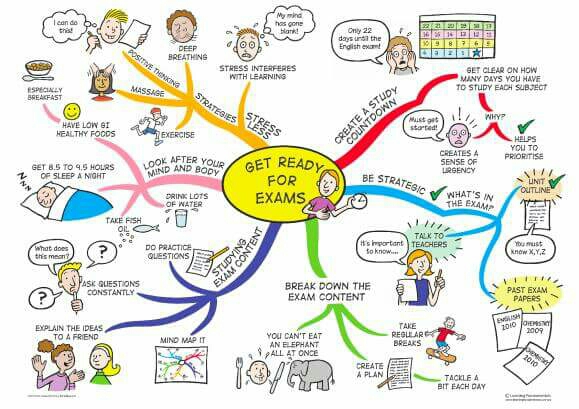Building Strong Study Habits: A Guide for New Students
Starting college or university can be an exciting yet overwhelming experience, especially when it comes to managing your studies. Developing strong study habits early on is crucial for academic success and personal growth. This guide offers practical strategies and tips to help new students build effective study habits that will last throughout their educational journey.
Understanding the Importance of Study Habits
Study habits refer to the consistent practices that help you learn and retain information effectively. Strong study habits can lead to:
- Improved Academic Performance: Consistent and effective studying enhances understanding and retention of material.
- Reduced Stress: Organized study habits reduce last-minute cramming and associated anxiety.
- Time Management: Developing a structured approach to studying helps balance academic responsibilities with other activities.
Creating a Study Schedule
Establishing a Routine
A well-structured study schedule is vital for effective learning. Here’s how to create one:
- Assess Your Time: Review your weekly commitments, including classes, work, and extracurricular activities.
- Allocate Study Blocks: Set aside dedicated study blocks for each subject, ensuring you have enough time for review before exams.
- Be Realistic: Schedule study sessions that are manageable, considering your attention span and energy levels.
Incorporating Breaks
Breaks are essential for maintaining focus. Use techniques like the Pomodoro Technique—study for 25 minutes, then take a 5-minute break. After four cycles, take a longer break (15-30 minutes).
Choosing a Study Environment
Finding the Right Space
Your study environment can significantly affect your concentration and productivity. Consider the following:
- Minimize Distractions: Choose a quiet space away from noise and interruptions.
- Comfort and Light: Ensure your study area is comfortable and well-lit to reduce fatigue.
- Accessibility to Resources: Select a location that provides access to necessary materials, such as textbooks, computers, and Wi-Fi.
Utilizing Effective Study Techniques
4.1 Active Learning
Active learning involves engaging with the material rather than passively reading or listening. Techniques include:
- Summarizing Information: After studying a section, summarize the key points in your own words.
- Teaching Others: Explaining concepts to peers or friends reinforces your understanding.
- Using Visual Aids: Diagrams, charts, and mind maps can help visualize complex information.
4.2 Note-Taking Strategies
Effective note-taking is essential for retaining information. Consider these methods:
- Cornell Method: Divide your notes into cues, notes, and summaries to organize information systematically.
- Mind Mapping: Create a visual representation of topics and subtopics to enhance understanding and recall.
- Digital Tools: Use apps like OneNote or Evernote for organized and searchable notes.
4.3 Study Groups
Joining a study group can provide support and motivation. Benefits include:
- Collaboration: Sharing knowledge and resources enhances understanding.
- Different Perspectives: Hearing different viewpoints can deepen comprehension of the material.
- Accountability: Committing to group meetings encourages regular studying.
Setting Specific Goals
SMART Goals
Setting specific, measurable, achievable, relevant, and time-bound (SMART) goals can guide your study efforts. Examples include:
- Daily Goals: Aim to complete a specific number of chapters or problems each day.
- Weekly Goals: Plan to review all lecture notes and create a summary by the end of the week.
- Long-Term Goals: Set a goal for your overall grade in a course and outline steps to achieve it.
Staying Organized
Use of Planners and Digital Tools
Keeping track of assignments, deadlines, and exams is crucial. Consider these organizational tools:
- Planners: Use a physical planner or digital calendar to jot down important dates and tasks.
- Task Lists: Create daily or weekly task lists to prioritize and manage your workload.
- Apps: Utilize productivity apps like Todoist or Trello to keep your tasks organized.
Maintaining a Healthy Lifestyle
Physical Health
A healthy body contributes to a healthy mind. Consider these aspects:
- Regular Exercise: Incorporate physical activity into your routine to boost energy and reduce stress.
- Balanced Nutrition: Eat nutritious meals to support cognitive function and overall well-being.
- Adequate Sleep: Prioritize sleep to enhance memory retention and focus.
Mental Health
Maintaining mental well-being is essential for effective studying:
- Mindfulness and Relaxation: Practice mindfulness techniques or meditation to reduce stress.
- Social Connections: Maintain relationships with friends and family to foster a support system.
Seeking Help When Needed
Utilizing Campus Resources
Don’t hesitate to seek help if you’re struggling. Consider these resources:
- Tutoring Services: Many institutions offer tutoring for specific subjects.
- Academic Advising: Academic advisors can guide you in course selection and study strategies.
- Counseling Services: Access mental health resources if you feel overwhelmed.
Conclusion
Building strong study habits is essential for academic success and personal fulfillment. By understanding the importance of effective studying, creating a structured schedule, utilizing diverse techniques, and maintaining a balanced lifestyle, new students can set themselves up for success. Remember, developing study habits takes time and persistence, so be patient with yourself as you adapt to this new phase of your education. With dedication and the right strategies, you can achieve your academic goals and enjoy a rewarding college experience.





